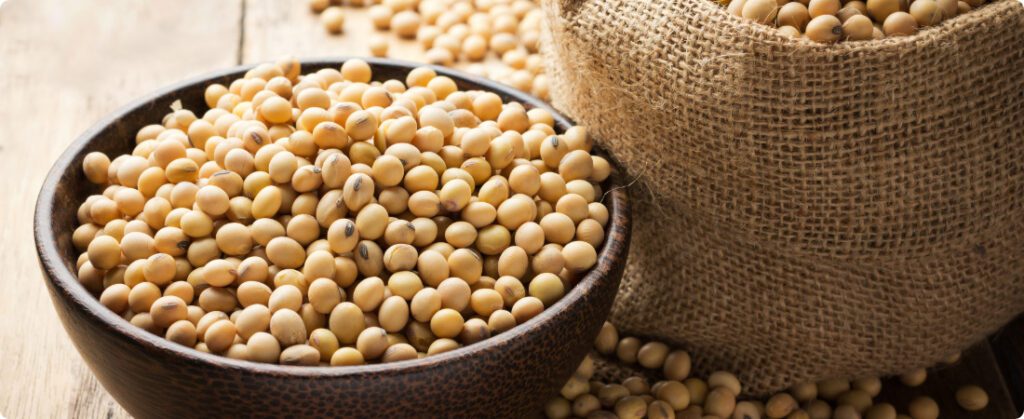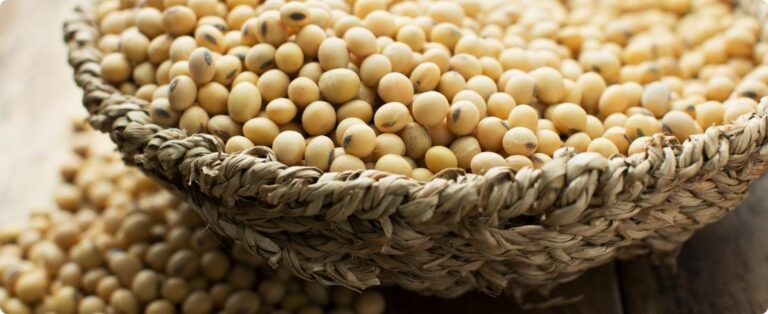
Argentine farmers are selling their soybean harvest at the slowest pace in 10 years, as producers in the South American country bet on a likely weakening of the peso and possible tax breaks from the government of libertarian President Javier Milei.
The latest government data shows farmers in Argentina, the world's biggest exporter of soybean oil and meal, have sold 8.4 million tonnes of 2024/25 soybeans as of March 19, equivalent to between 17.3%-18.1% of the expected crop.
That marked the slowest pace since the 2014/15 season, when 15.7% of the soybean crop was sold at the same time last year. Sales are a quarter below where they were last year. Argentine farmers are selling their soybean crop at the slowest pace in 10 years as producers in the South American country bet on a likely weakening peso and possible tax breaks from the government of libertarian President Javier Milei.
The latest government data shows farmers in Argentina, the world's biggest exporter of soybean oil and meal, have sold 8.4 million tonnes of 2024/25 soybeans as of March 19, equivalent to between 17.3%-18.1% of the expected crop.
That marked the slowest pace since the 2014/15 season, when 15.7% of the soybean harvest was sold at the same time last year. Sales are a quarter below where they were last year.
Expectation of devaluation and tax benefits
“Producers are only selling what they need to cover their expenses. It’s another year where they’re waiting to see what happens next, especially with the exchange rate,” said Pedro Jaquelin, a farmer in the grains hub city of Pergamino.
Argentine traders have been betting on a faster depreciation of the peso ahead of an expected $1.4 billion loan deal with the International Monetary Fund. Peso futures have surged since mid-month.
Local farmers' crops are priced in dollars, but they receive the equivalent in pesos, meaning a weaker peso would give them more local currency, an incentive to hold on to their crops.
Soybeans: pillar of Argentine finances
“The uncertainty and the numbers don’t add up. Producers are waiting to see a change,” said Jaquelin, who is also president of the rural society of Pergamino, in the province of Buenos Aires.
Slower soybean sales are a concern for Milei, whose government needs dollars to help stabilize the local peso. Soybeans are the country’s main source of foreign currency, mainly through exports of processed soybean oil and meal.
The Argentine peso is currently at 1,070 per dollar, although a June futures contract has surged to near 1,200 per dollar in recent weeks. The government has moved to downplay talk of a potential devaluation.
Keep an eye on Milei's exports and promises
Farmers also said they were closely watching tax rates on soybean exports. The current rate is 26% for soybeans, while the rate for soybean oil and meal is 24.5%. Some farmers expect Milei to make good on promises to cut them further after a temporary reduction until June.
“The idea in the producers’ heads is that, if they have already lowered prices once, why wouldn’t they lower them again?”, said Ricardo Bergmann, vice president of the soybean chamber AcSoja.
The farmer from Monte Buey, in the central province of Córdoba, added that there are several bills in the committee stage in Congress. These proposals aim to reduce taxes on exports. The scenario takes on even greater importance in a year in which Milei will try to consolidate his power in the midterm elections, scheduled for October.
Climate and corn
The delay in soybean sales is also related to the adverse weather conditions faced by Argentine farmers. During the 2024/25 season, there were difficulties at different times. At the beginning of planting last year, the weather already presented challenges. Later, a severe drought between January and February made producers even more cautious.
Heavy rains in the second half of February, however, eased fears about the impact of drought and helped spur a strong early corn crop. Farmers said they were more focused on corn sales, taking advantage of stronger prices.
“More early corn is being harvested, and it’s coming in now. Farmers are choosing to sell more corn,” said Rosario-based agricultural analyst Lorena D’Angelo.
Meanwhile, the CIARA-CEC chamber of grain exporters and processors has noted a shift in the landscape. Due to the slower pace of domestic sales, local crushers have increased trade with Paraguayan farmers. These producers ship their grain to Rosario factories via barges that sail along the Paraná River.
Source: Maximilian Heath, Adam Jourdan and Sandra Maler | Notícias Agrícolas
















